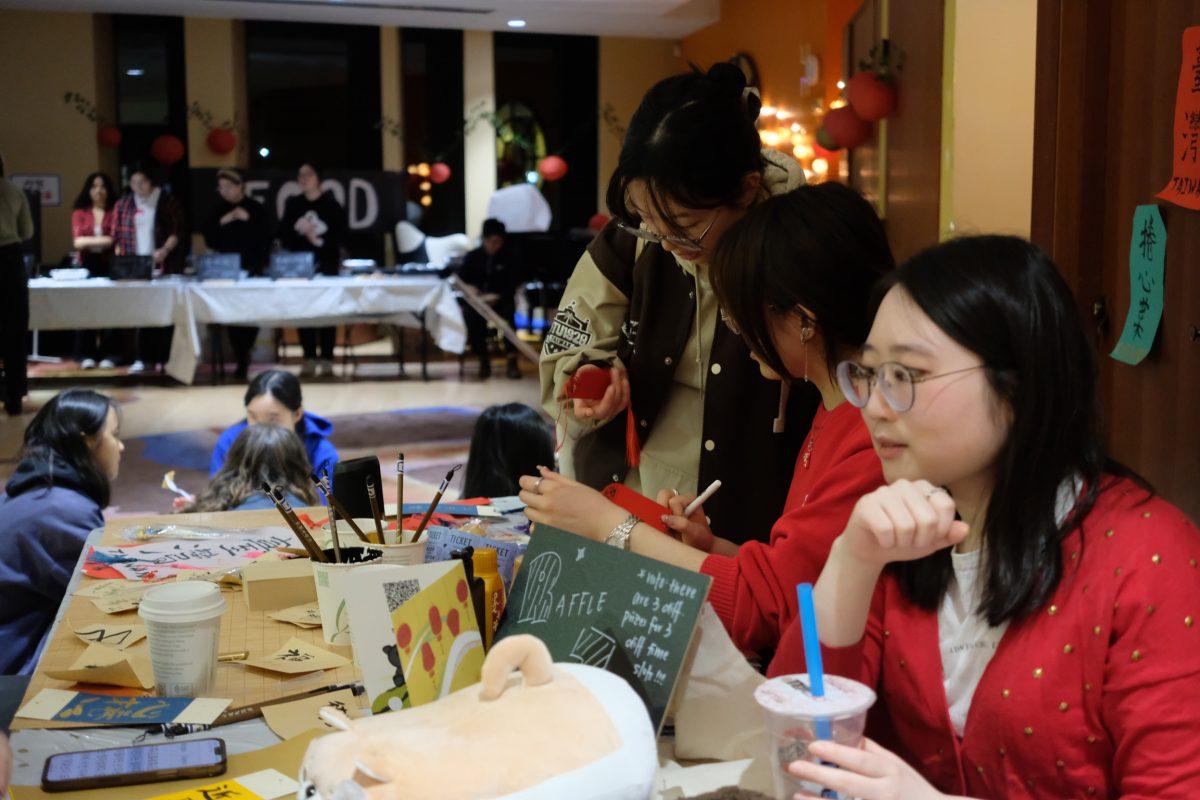On Saturday March 9, Wellesley’s Taiwanese Cultural Organization (TCO) hosted their annual Night Market from 5-8 p.m., the organization’s largest event of the year. Michelle Lee ’25, TCO’s co-programming chair, explained the significance behind the popular event.
“Night Market is the biggest event that TCO hosts. It’s basically a recreation of a Taiwanese Street Market, which is really fundamental to Taiwan’s nightlife. And we recreated that in Tishman Commons … We have games and performances, and lots of free food, and also vendors who sell any of their creations or other things,” she said.
This year’s Night Market attendees were given a small booklet upon arrival where they could get stamps as they completed certain activities, and if they got all the stamps they qualified for the raffle drawing. The booklet served a dual purpose in highlighting activities that might otherwise be missed and also ensuring those with limited capacity (such as the provided dinner) were visited only once.
Lee described planning for the night as extensive, but rewarding to see it all come together.
“As a 19 member e-board we have a lot of volunteers helping us day-of … And although the event itself is only three hours, there’s a lot of planning that goes into it ahead of time. Volunteers for game booths and for distributing food often come from our general members and also kind of horizontally around across [other] Asian orgs … Prep usually starts right around when we get back for winter break, if not before. In terms of booking the venue and timeline of that day, it’s as early as the summer before that school year begins. It’s definitely an extensive project. But I would say it’s really fruitful, the feeling of accomplishing an event of that scale,” she said.
Lee explained that a big part of the process for planning the event and even considering future iterations has been thinking about how turnout and participation for bigger scale events at Wellesley has changed in the wake of the pandemic. Lee worked hard to publicize the event thoroughly so it can be maintained as an important Wellesley tradition, including specifically reaching out to professors to encourage them and their families to attend.
This year’s Night Market saw an impressive turnout of 450, with consistent numbers throughout the duration of the event, which had been a concern for Lee as there were performances happening throughout the night and she wanted to ensure all of them had an audience. In the future, Lee hopes to see the event expand, but notes that it is difficult to organize on top of her other responsibilities.
“I imagine the [Night] Market being bigger, having food trucks and more outside guests coming … I really think it’s a good opportunity for younger children to come play games and be exposed to Taiwanese culture. And so if more local families could be exposed, that’d be awesome. These are all big dreams, though. Because I will say that it’s really hard to balance the role with schoolwork … It can be difficult to work towards establishing an event that will be really fruitful, but knowing that it could possibly take away from the work that you’re doing academically … I would love to come visit [after I graduate]. I feel like it would be really interesting to see how those traditions progressed, post my Wellesley experience,” she said.
Despite the work involved, Lee noted how invaluable cultural orgs and their events are to the Wellesley community, including for those who don’t belong to the cultural group being celebrated or discussed, which is something she has experienced personally.
“I’m actually Korean. I’m not Taiwanese … and so I get a lot of questions about why I’m in TCO and if I’ve lived in Taiwan before or if I can speak Chinese. I think I’m a little bit of a testament to say that a lot of cultural orgs here can be really inviting to other ethnicities outside of their central ethnicity that the org is about,” Lee said. “And throughout those orgs, you can totally find community through event planning and eating food together and talking about certain cultural topics … Even though event planning can be hard and extensive and long, it gives me an opportunity to get closer with my org and feel like I really accomplished something for a mission that I liked or something that I care about.”




